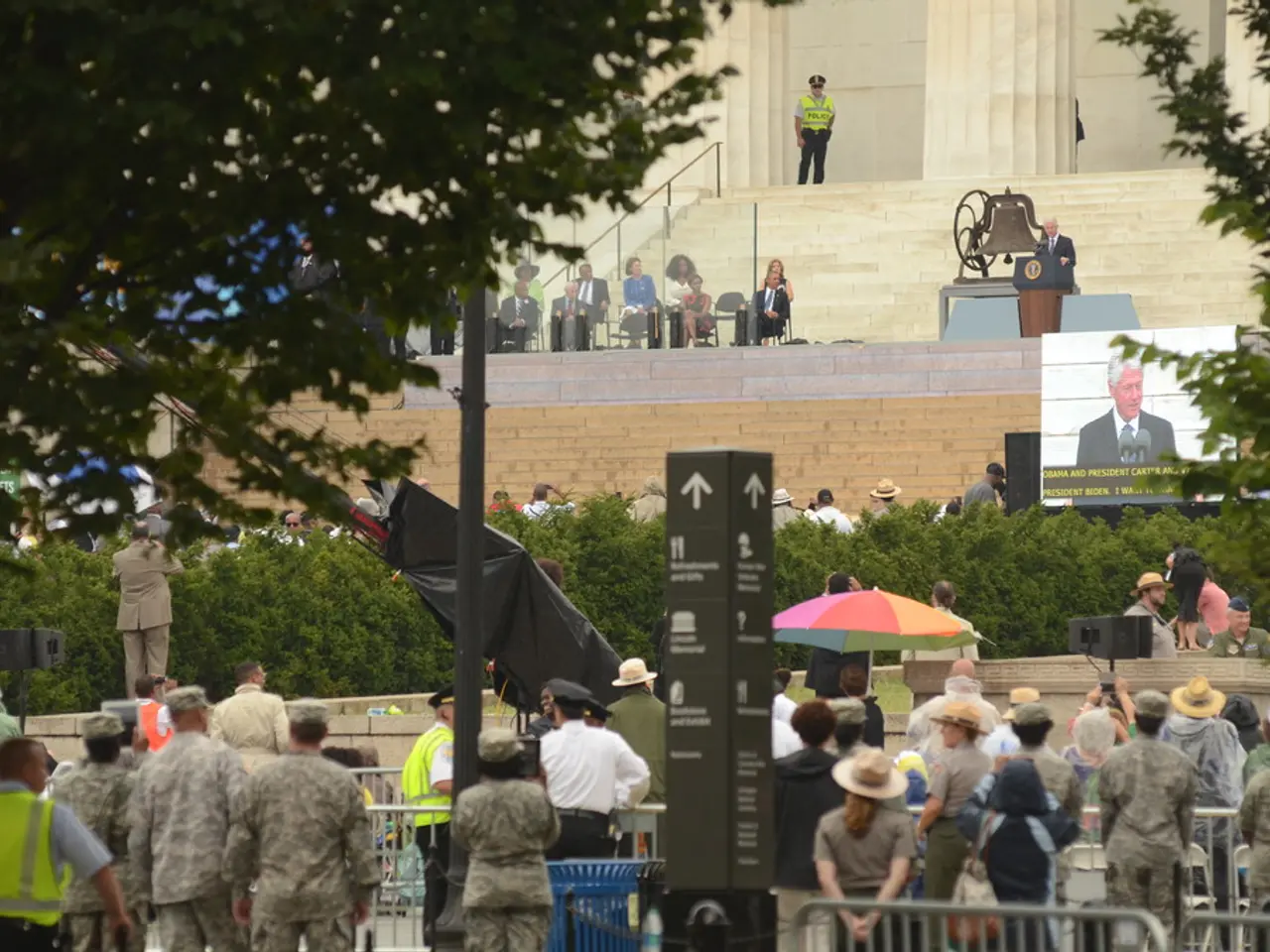United States President Trump signs executive order imposing sanctions on nations found guilty of unlawfully imprisoning American citizens.
The White House has taken a significant step with the signing of an executive order by President Donald Trump. The order aims to impose economic sanctions and travel restrictions against countries that unlawfully detain American citizens.
The executive order, reminiscent of the designation of "State Sponsors of Terrorism," is intended to put America and its citizens first, according to US Secretary of State Marco Rubio. Rubio also stated that "Anyone who uses Americans as pawns will pay the price."
The travel ban is seen as a "powerful tool" to pressure regimes that practice the detention of foreigners by a high-ranking official in the Trump administration. The order provides for the application of these sanctions and visa restrictions against any country recognized as a "sponsor of unlawful detention" by the White House.
The Trump administration has justified the ban on Palestinian officials citing the Palestinian Authority's cooperation with international courts investigating Israeli actions during the Gaza war. However, Palestinian officials report that over 64,000 Palestinians have died in 22 months of fighting, with no evidence that the Palestinian Authority is detaining U.S. citizens.
The new mechanism could impact the participation of certain foreign leaders in the annual session of the UN General Assembly. On the day the executive order was signed, 40 congressmen called on Trump to refrain from issuing visas to Iranian leader Masoud Pezeshkian and other high-ranking officials of the Islamic Republic.
Potential countries that could face sanctions under the new restrictions include China, Iran, and Afghanistan, due to their practice of "hostage diplomacy." Iran, Russia, and North Korea could also be subject to new sanctions, as they are seen to systematically practice "Geiselpolitik."
The new rules may potentially bar President of Palestine Mahmoud Abbas and other high-ranking officials of the Palestinian Authority from participating in meetings where US allies intend to recognize the Palestinian state. This move comes as the Trump administration strongly opposes the recognition of the Palestinian state by US allies.
The UN Secretary-General has already expressed concern over the ban on Palestinian officials. The State Department does not publish a list of countries that detain U.S. citizens, but issues a "do not travel" warning for nations that pose a "high risk" of detention, including Venezuela and Russia.
Sebastian Gorka, the administration's counterterrorism director, said, "The clear line is drawn, beyond which American citizens will not be used as pawns." The executive order is a clear statement of the Trump administration's commitment to protect American citizens and assert America's global leadership.
Read also:
- Tobacco industry's suggested changes on a legislative modification are disregarded by health journalists
- Trump's Policies: Tariffs, AI, Surveillance, and Possible Martial Law
- Uncovering Political Ad Transparency: A Guide to Investigating opponent's Political Advertisements in the Digital Realm
- Elon Musk praises JD Vance's debate performance against Tim Walz








